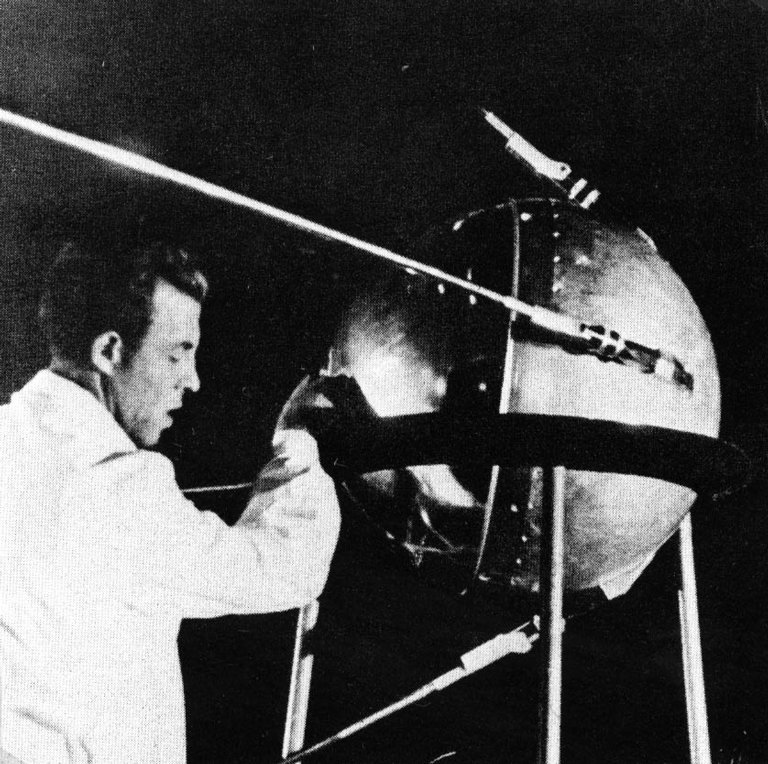'World Space Week' Launches Today on Sputnik Anniversary

Get the world’s most fascinating discoveries delivered straight to your inbox.
You are now subscribed
Your newsletter sign-up was successful
Want to add more newsletters?

Delivered Daily
Daily Newsletter
Sign up for the latest discoveries, groundbreaking research and fascinating breakthroughs that impact you and the wider world direct to your inbox.

Once a week
Life's Little Mysteries
Feed your curiosity with an exclusive mystery every week, solved with science and delivered direct to your inbox before it's seen anywhere else.

Once a week
How It Works
Sign up to our free science & technology newsletter for your weekly fix of fascinating articles, quick quizzes, amazing images, and more

Delivered daily
Space.com Newsletter
Breaking space news, the latest updates on rocket launches, skywatching events and more!

Once a month
Watch This Space
Sign up to our monthly entertainment newsletter to keep up with all our coverage of the latest sci-fi and space movies, tv shows, games and books.

Once a week
Night Sky This Week
Discover this week's must-see night sky events, moon phases, and stunning astrophotos. Sign up for our skywatching newsletter and explore the universe with us!
Join the club
Get full access to premium articles, exclusive features and a growing list of member rewards.
A weeklong international celebration of spaceflight and exploration kicks off today (Oct. 4), with hundreds of events planned in dozens of countries around the world.
The 13th annual World Space Week runs from Oct. 4 through Oct. 10 — both key dates in the history of space exploration. On Oct. 4, 1957, the Soviet Union lofted Sputnik 1, humanity's first-ever artificial satellite. And the Outer Space Treaty, which forms the basis for international space law, came into effect on Oct. 10, 1967.
World Space Week always has a theme, and this year it's "Space for Human Safety and Security." More than 350 events spread across nearly 50 countries will highlight the ways in which humanity's space activities make daily life better for us here on Earth, organizers said.
The events cover a lot of ground, both literally and figuratively. They include an astrophotography exhibition in New Delhi, India, for example, as well as a presentation by NASA astronaut Mike Foreman in Cleveland, Ohio, about NASA's commercial crew program.
And today, World Space Week will hold a tweetup from the International Astronautical Congress meeting in Naples, Italy. The event, which uses the hashtag #wswtweetup, begins at 12 p.m. EDT (1600 GMT). Apollo moonwalker Buzz Aldrin is slated to speak, as is Planetary Society CEO and former TV "Science Guy" Bill Nye. [Sputnik 1, Earth's First Artificial Satellite (Photos)]
To see if any activities are happening near you over the next seven days, check out http://www.worldspaceweek.org.
The United Nations established World Space Week in 1999, and the event was first held a year later. The U.N. continues to help organize the annual celebration, according to the World Space Week Association.
Get the world’s most fascinating discoveries delivered straight to your inbox.
World Space Week has five main goals, according to its website: 1) Educate people around the globe about the benefits of spaceflight and exploration; 2) Encourage greater use of space for sustainable economic development; 3) Show that space programs enjoy public support; 4) Get young people excited about science; and 5) Encourage international cooperation in space outreach and education.
This story was provided by SPACE.com, a sister site to LiveScience. Follow SPACE.com on Twitter @Spacedotcom. We're also on Facebook & Google+.
 Live Science Plus
Live Science Plus












